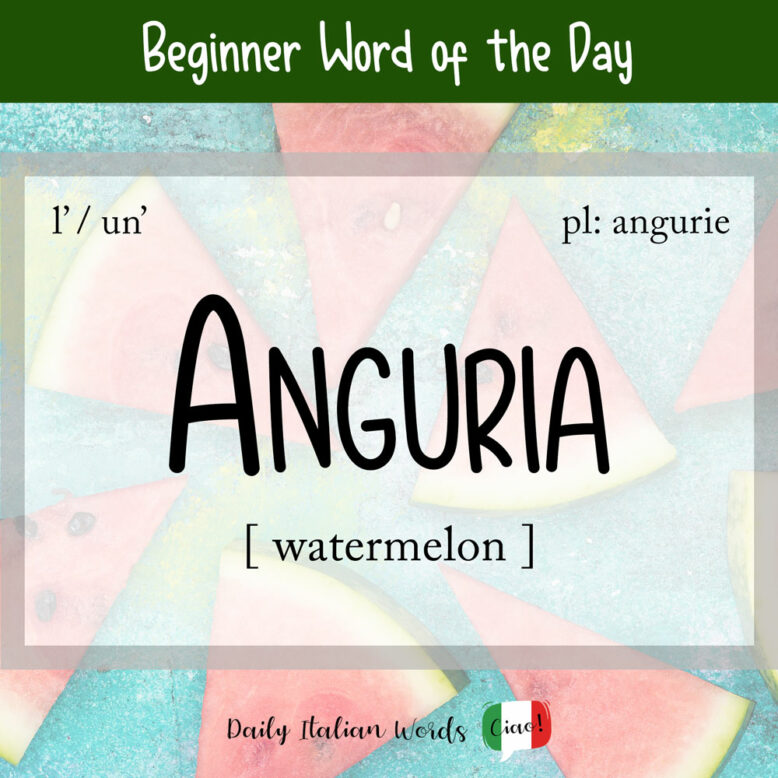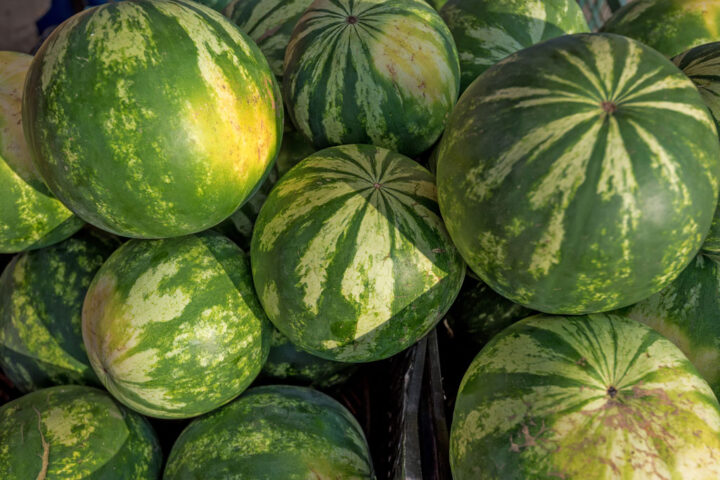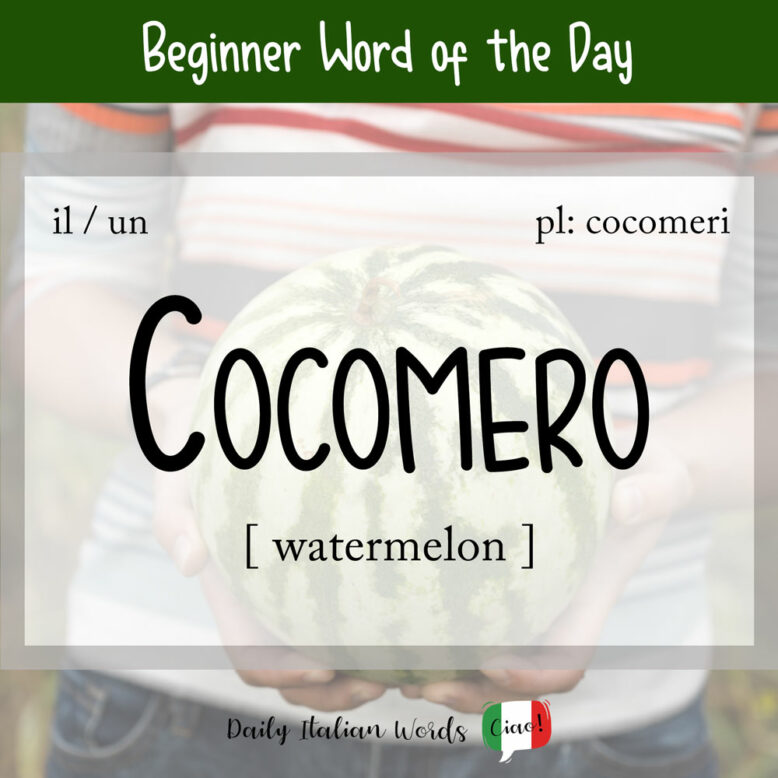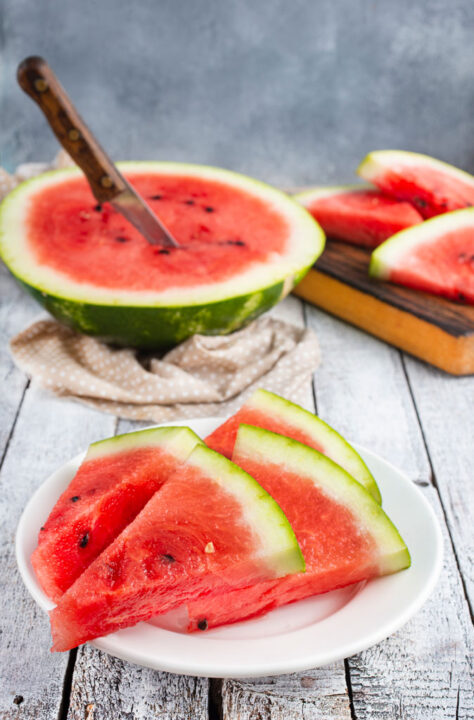In Italian, there are two predominant terms for watermelon, and the one you end up using the most will depend on where you live in Italy.
My husband is from Turin in the north-west of Italy, and the only word he’s ever used for watermelon is anguria (feminine, plural: angurie). This term is also dominant in other northern regions such as Lombardy and Veneto, as well as the island of Sardinia.

Esistono veramente delle persone a cui non piace l’anguria?
Are there really people who don’t like watermelon?

If you visit Tuscany and other parts of the central south however, you’ll discover that the most common term for watermelon is cocomero (masculine, plural: cocomeri). When I asked my husband if he was familiar with the term, he told me that he knew it but that he’d only ever heard it in the insult Testa di cocomero! (Watermelon head!)

Il bambino sta mangiando una fetta di cocomero fresco.
The child is eating a slice of fresh watermelon.
The takeaway message for learners of Italian is that both anguria and cocomero are perfectly understandable to any Italian person, regardless of their geographical origin.
Perhaps the only exception is regions such as Lombardy and Genova where both anguria and cocomero are in use but the latter refers to a cucumber (more commonly known as a cetriolo in standard Italian) rather than a watermelon!
Other dialectal variants for watermelon include:
- melone d’acqua (Naples, Calabria, Sicily)
- pasteca (North East, Liguria)
- melone rosso (Sicily)

Heather Broster is a graduate with honours in linguistics from the University of Western Ontario. She is an aspiring polyglot, proficient in English and Italian, as well as Japanese, Welsh, and French to varying degrees of fluency. Originally from Toronto, Heather has resided in various countries, notably Italy for a period of six years. Her primary focus lies in the fields of language acquisition, education, and bilingual instruction.


